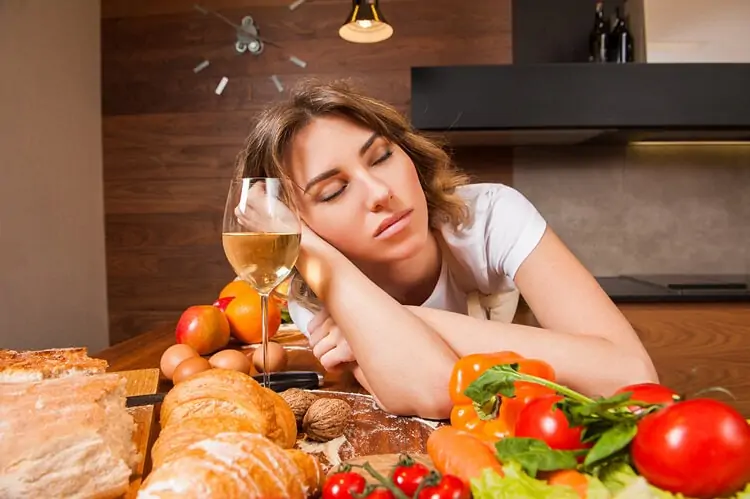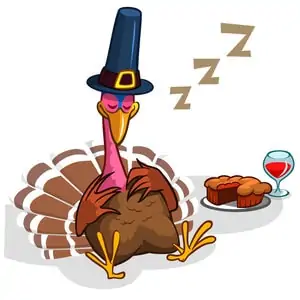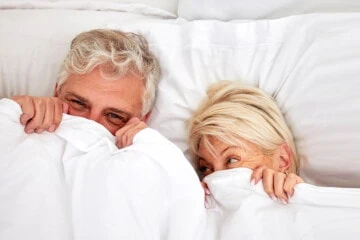
Avoid the food coma holiday season with our sleep tips on improving your sleep cycle.
Thanksgiving in Canada and the traditional turkey dinner usually ends in an epic full-on food coma. Some feel the cause is from the endless amounts of turkey – which produces something called tryptophan that promotes sleepiness. Others think that the after-dinner crash is just part of the traditional holiday festivities. Various reasons contribute to the feeling of sleepiness after a large feast. However, the biggest issue at hand is allowing ourselves to obtain the highest quality of sleep possible during the holiday season. Read on if you would like some tips to help make this possible.
Avoid Eating Fast
There are so many delicious options to eat during the average thanksgiving meal. We want to make sure that we take things slowly. Eating slower will help you decrease the risk of indigestion and heartburn. Everyone has their eye on the prime slice of pie or favorite dessert; but, letting either Grandpa Bob or Aunt Martha have it instead of eating too fast will help you get that better night of sleep – that you deserve.
Avoid Alcohol And Caffeine
Just like eating too fast, partaking in evening libations and caffeine promote the likelihood that you will suffer from indigestion or heartburn. The after-effects will cause an uncomfortable stomach and make it very difficult to sleep. Avoiding that after-dinner coffee (including all drinks or food containing caffeine) or that late evening glass of wine too close before bedtime will increase your chances of a good night of sleep.
Plan To Eat Earlier
The typical family thanksgiving dinner is served between 5 to 7 pm. If you think that your family is up for it, try and schedule this for earlier in the afternoon/evening. By planning for an early feast, it will allow your body the time to digest a fair portion of your meal before going to bed and, in turn, promoting a better quality of sleep. If needed, a small healthy snack before bedtime can help your body sleep restfully throughout the entire night.
Keep Active And Avoid Napping
While you are dishing up your plate, pay attention to the number of refined carbohydrates you serve up; your insulin levels will drop, making us feel tired. The result usually has us wanting to nap after dinner, which will impact our sleep cycle at night. After dinner, try and stay active by going for a walk, washing the dishes, or simply by partaking in the family festivities; instead of heading for the recliner in the corner where you will gobble up all chances of getting a good night of sleep.
Practice Good CPAP And Sleep Hygiene
Ensure that your CPAP equipment is clean and not all covered in turkey gravy… or any of the leftovers from your earlier dinner.
Try to keep your regular sleep times. Avoid staying up later and then sleeping in; this will disrupt your body’s sleep patterns and cause disrupted sleep.
Make sure your bedroom is a welcoming place for a good sleep. Create a relaxing and inviting environment that is quiet, dark, and a little bit cooler. These are the ingredients that will help you obtain that better night of sleep that we all deserve. Proper sleep hygiene is fundamental to support a better quality of life.





